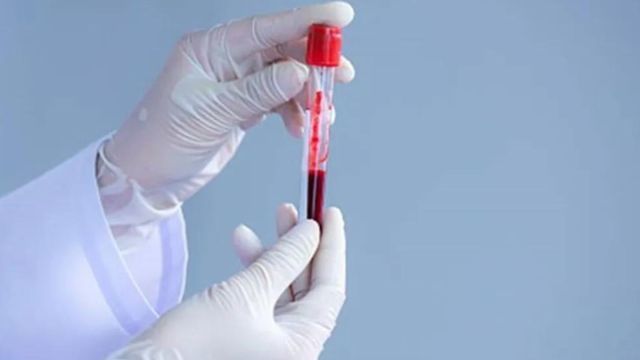Can you predict cancer risk seven years in advance with blood tests? Two studies have some answers
Early diagnosis can save lives. That’s why such tests cannot afford to be just indicative but definitive, says oncologist Dr Manish Singhal
 Decoding the findings, Dr Manish Singhal, senior consultant, medical oncology, Indraprastha Apollo Hospitals, New Delhi says while some proteins are shed from cancer cells, the human body generates cancer cells daily and destroys them too. (Express File)
Decoding the findings, Dr Manish Singhal, senior consultant, medical oncology, Indraprastha Apollo Hospitals, New Delhi says while some proteins are shed from cancer cells, the human body generates cancer cells daily and destroys them too. (Express File)What if you could predict the possibility of developing cancer with a simple blood test? That’s not too far away as two studies by researchers at Oxford Population Health’s Cancer Epidemiology Unit have found that certain proteins present in the blood may be able to predict a person’s risk of developing some types of cancer more than seven years before they are diagnosed with the disease.
The studies were published in Nature Communications and analysed blood samples from over 44,000 participants in the UK Biobank, including 4,900 individuals who were diagnosed with cancer after their samples were collected. Researchers looked at 1,463 proteins present in the blood samples. To find out which ones could be linked to cancer risk, they compared the results for people who did not develop cancer with the results for those who went on to develop cancer to see whether or not there were any differences between the proteins present. They identified 618 proteins linked to 19 types of cancer, including colon, lung, non-Hodgkin lymphoma and liver.
Decoding the findings, Dr Manish Singhal, senior consultant, medical oncology, Indraprastha Apollo Hospitals, New Delhi says while some proteins are shed from cancer cells, the human body generates cancer cells daily and destroys them too. “Therefore having a protein may not be a certainty of you developing cancer but a red flag that you need to switch over to a corrective lifestyle,” he adds.
How helpful can such blood tests on protein markers be in diagnosing various kinds of cancer in India?
We need to see long-term results of such tests to be sure of their efficacy. Most existing treatments are based on solid proof of cancer on biopsy and CT scans. Imagine the fear and anxiety in a person who is told on the basis of protein markers that they could develop cancer in later years but would be treated only when the disease showed up on scans and biopsy. What if they never develop cancer but definitely slip into depression due to continued fear? A possibility should also be followed by a preventive guidance.
What are the potential links between plasma proteins and cancer risk?
There is a certain link that such proteins are shed by cancer cells. High protein levels could point to certain types of cancer (mostly blood cancers like leukemia, lymphoma and multiple myeloma). Some tests, like the comprehensive metabolic panel (CMP) test, include a total protein test by default, which can also provide this information.
If these proteins are found in a person, should they worry?
We need to have clear and accepted protocols of what to do with the result of such a test which I think is still lacking. We cannot leave the person in ambiguity after the result. This onus lies with the test makers.
How important is it to diagnose cancer early?
Certainly early diagnosis can save lives. That’s why such tests cannot afford to be just indicative but definitive. Besides, they need precise follow-up protocols.





- 01
- 02
- 03
- 04
- 05

























